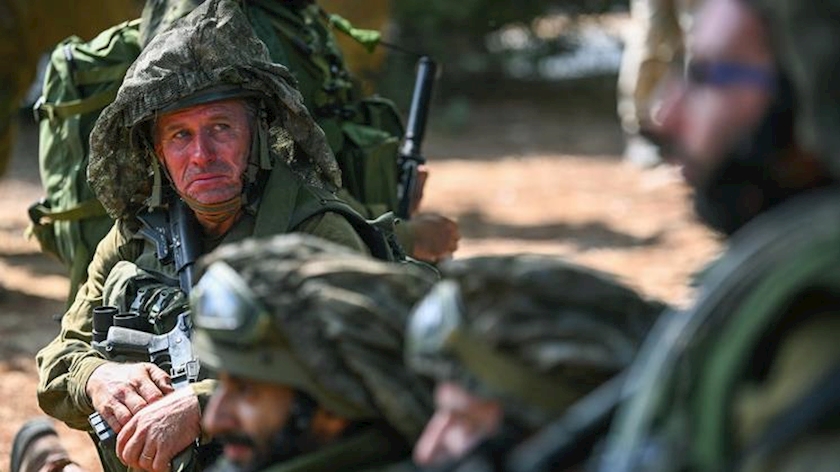AhlulBayt News Agency: After over a year of relentless genocide in Gaza, Israel is showing signs of widespread war fatigue, with economic strains and military pressures mounting.
The prolonged Israeli genocidal campaign in Gaza has deeply impacted Israeli settlers and its armed forces, according to a report by The Washington Post on Sunday.
Israel launched a large-scale genocidal campaign in Gaza, characterized by intensive aerial bombardments and a ground invasion.
The human cost of the genocide has been staggering. According to the health authorities in Gaza, over 44,000 Palestinians have been killed, with more than 104,000 injured. Palestinian officials say that the majority of casualties are civilians, given Gaza’s densely populated environment.
The ongoing war has also strained Israel's economy. The Post highlights the significant absence of hundreds of thousands of reservists called up for military duty, creating labor shortages across sectors. This workforce gap is beginning to affect the regime’s economy, raising concerns about the sustainability of the war.
The Israeli military faces its own challenges, with reports suggesting a growing reluctance among reservists to report for duty. Nadav Shoshani, an spokesperson for the Israeli military, estimated a 15% decline in enlistment numbers compared to the previous year. “The strain on our forces is unprecedented,” Shoshani stated, emphasizing the challenges of maintaining operational readiness.
/129
The prolonged Israeli genocidal campaign in Gaza has deeply impacted Israeli settlers and its armed forces, according to a report by The Washington Post on Sunday.
Israel launched a large-scale genocidal campaign in Gaza, characterized by intensive aerial bombardments and a ground invasion.
The human cost of the genocide has been staggering. According to the health authorities in Gaza, over 44,000 Palestinians have been killed, with more than 104,000 injured. Palestinian officials say that the majority of casualties are civilians, given Gaza’s densely populated environment.
The ongoing war has also strained Israel's economy. The Post highlights the significant absence of hundreds of thousands of reservists called up for military duty, creating labor shortages across sectors. This workforce gap is beginning to affect the regime’s economy, raising concerns about the sustainability of the war.
The Israeli military faces its own challenges, with reports suggesting a growing reluctance among reservists to report for duty. Nadav Shoshani, an spokesperson for the Israeli military, estimated a 15% decline in enlistment numbers compared to the previous year. “The strain on our forces is unprecedented,” Shoshani stated, emphasizing the challenges of maintaining operational readiness.
/129

